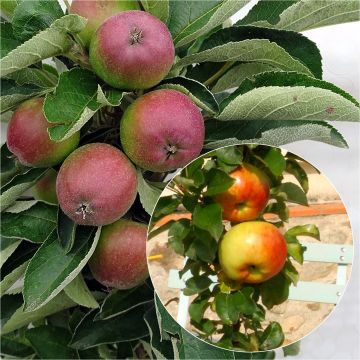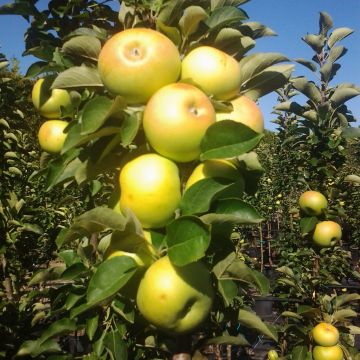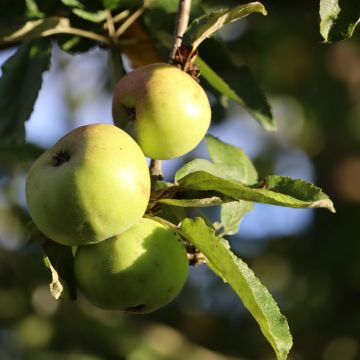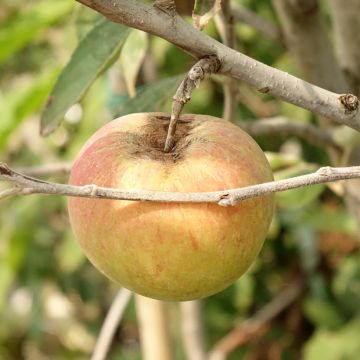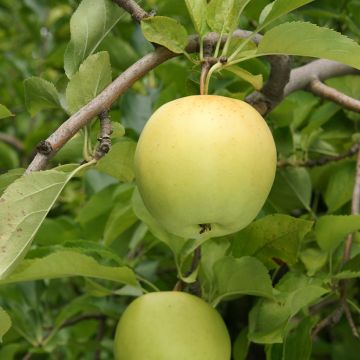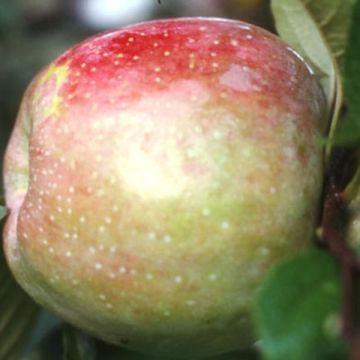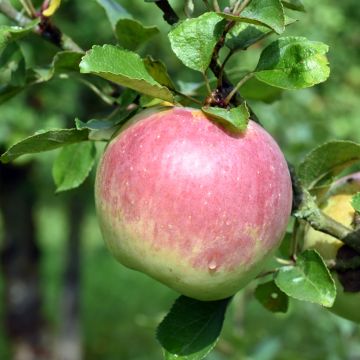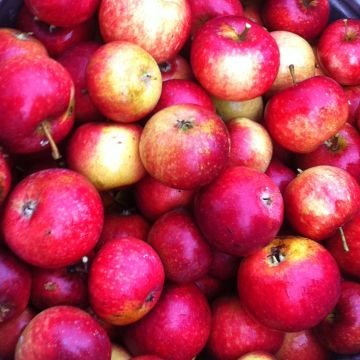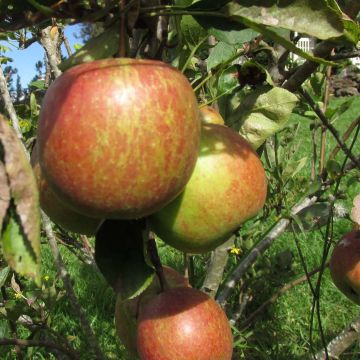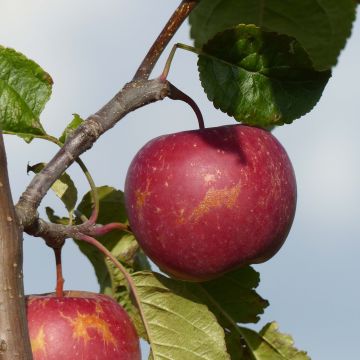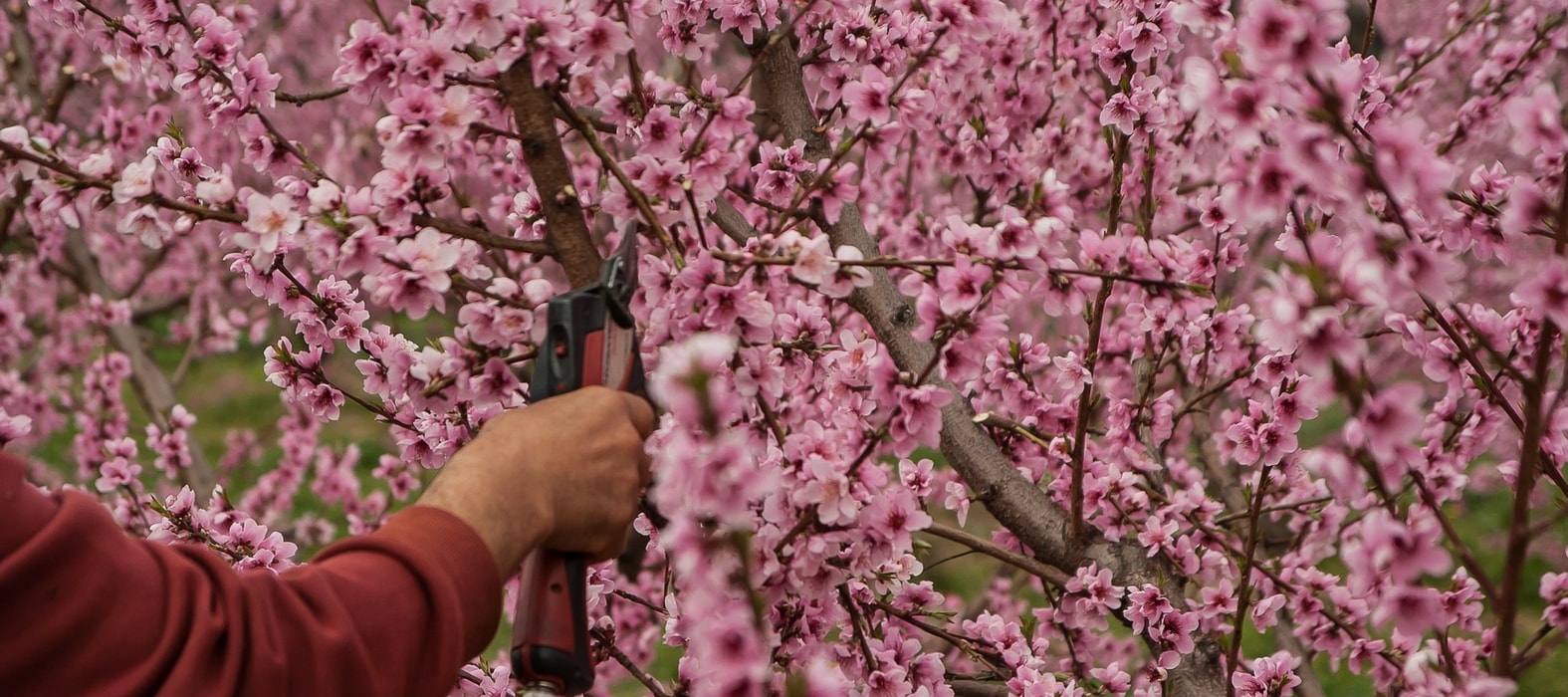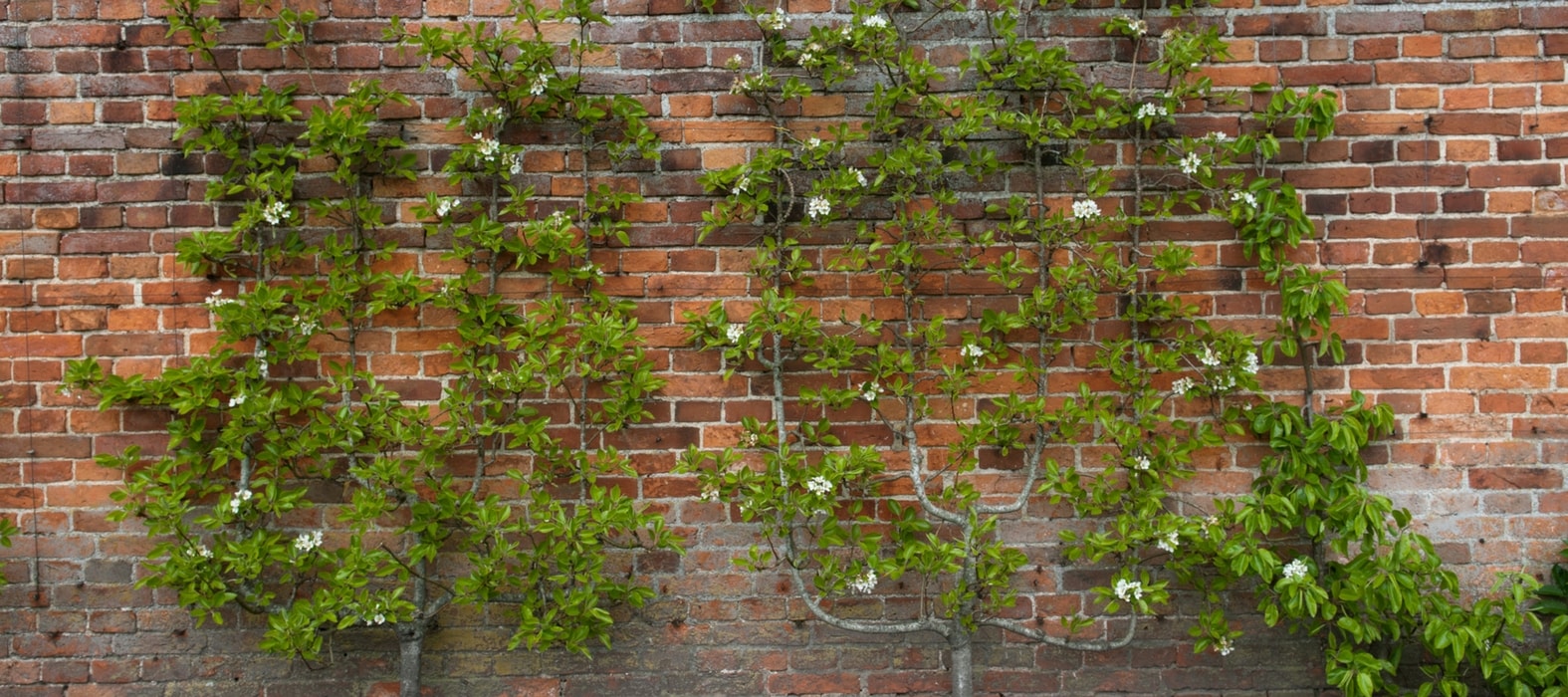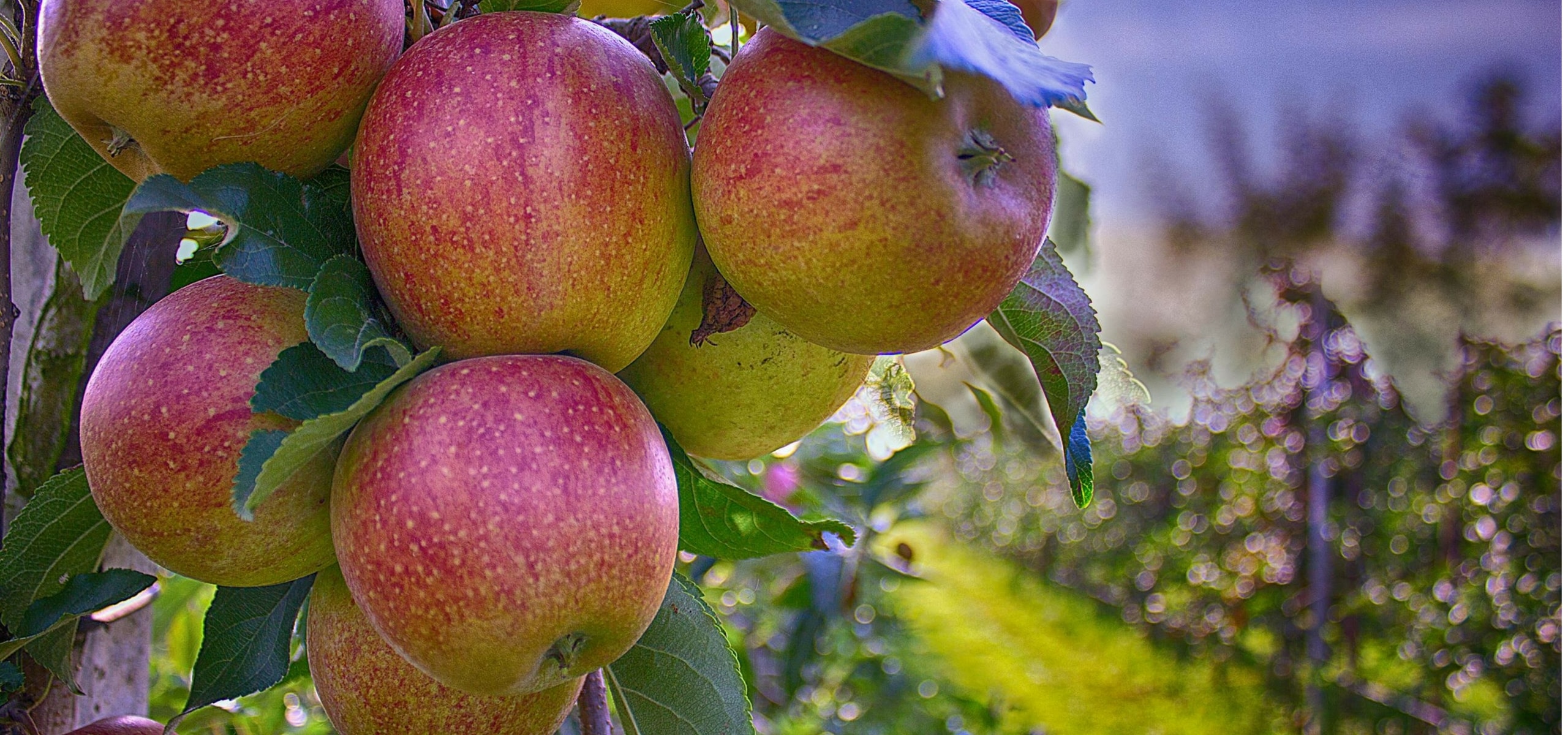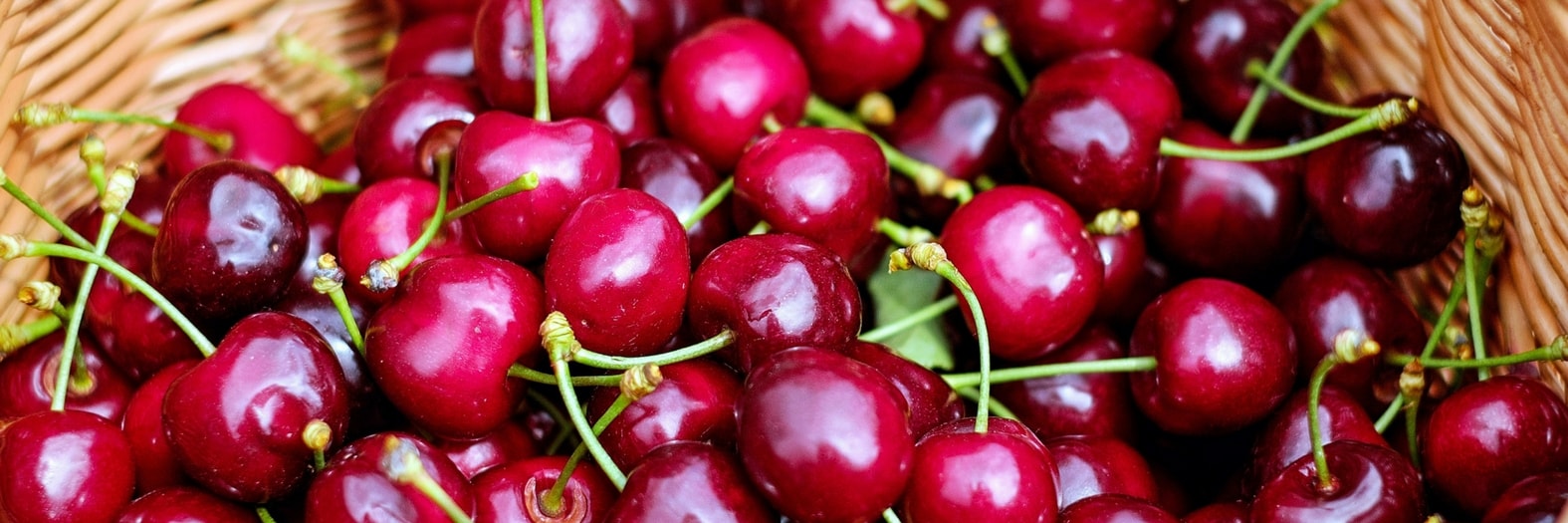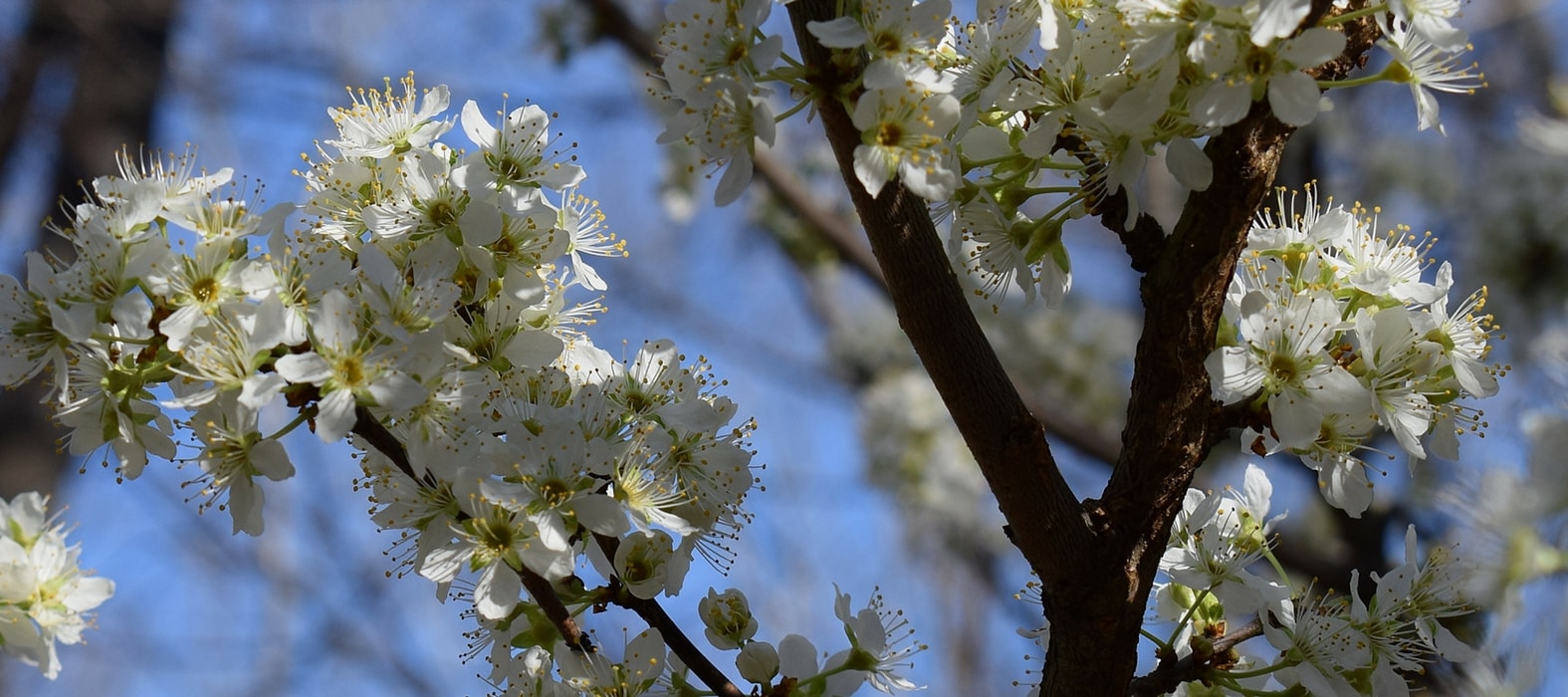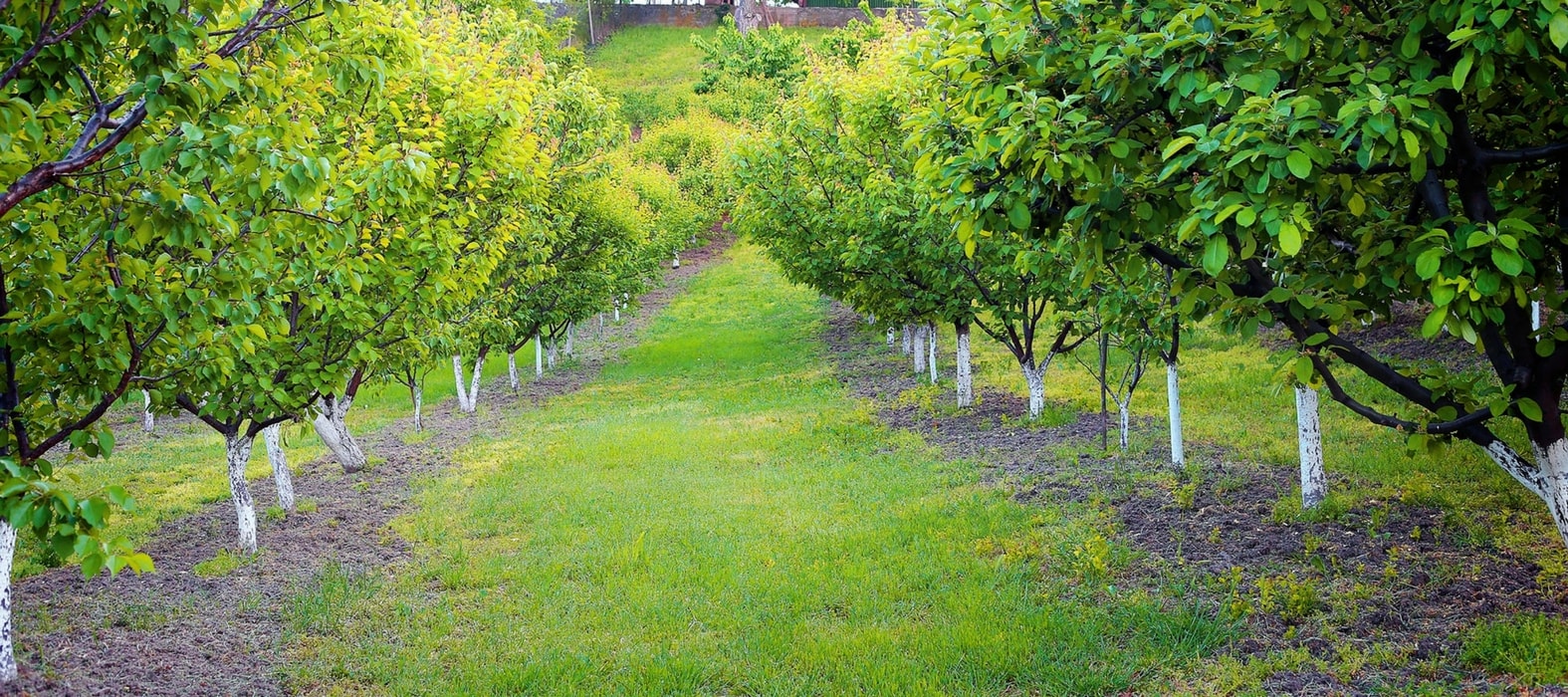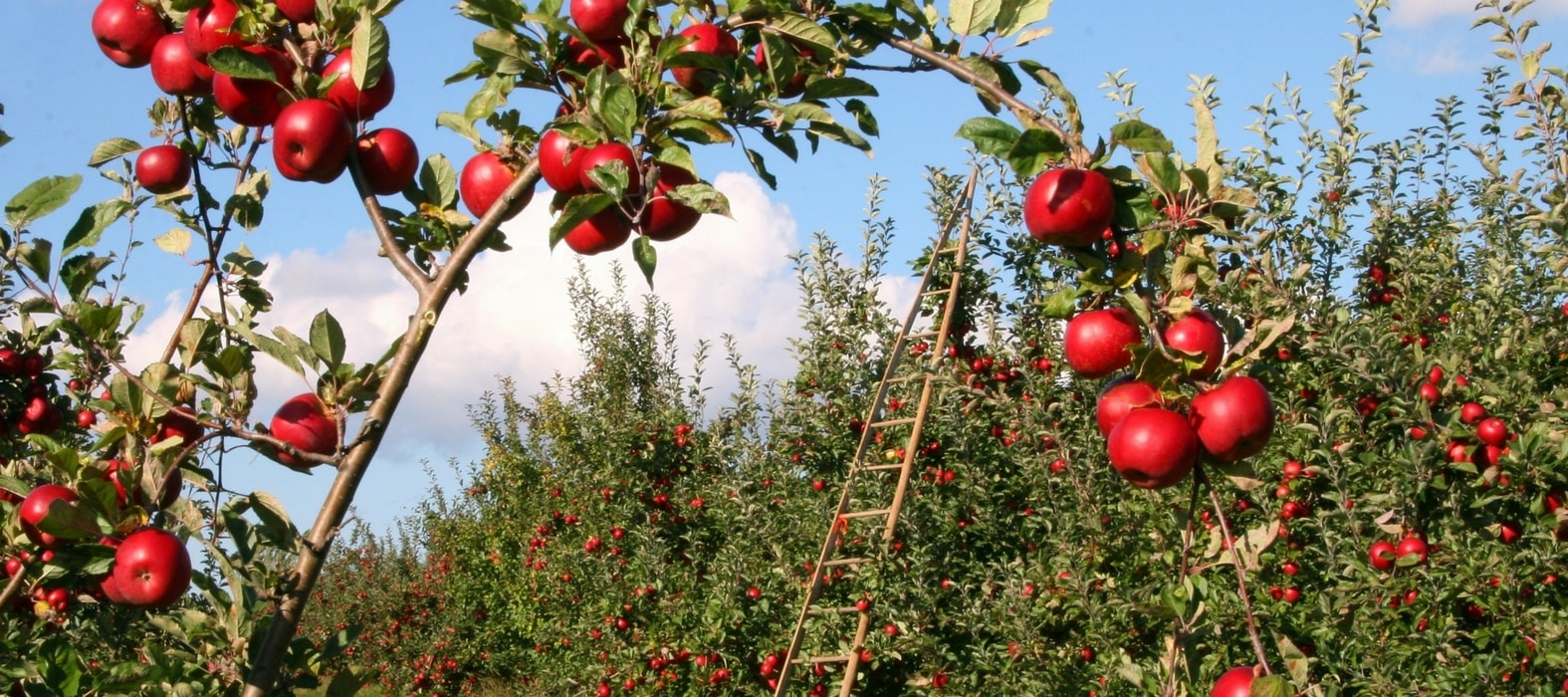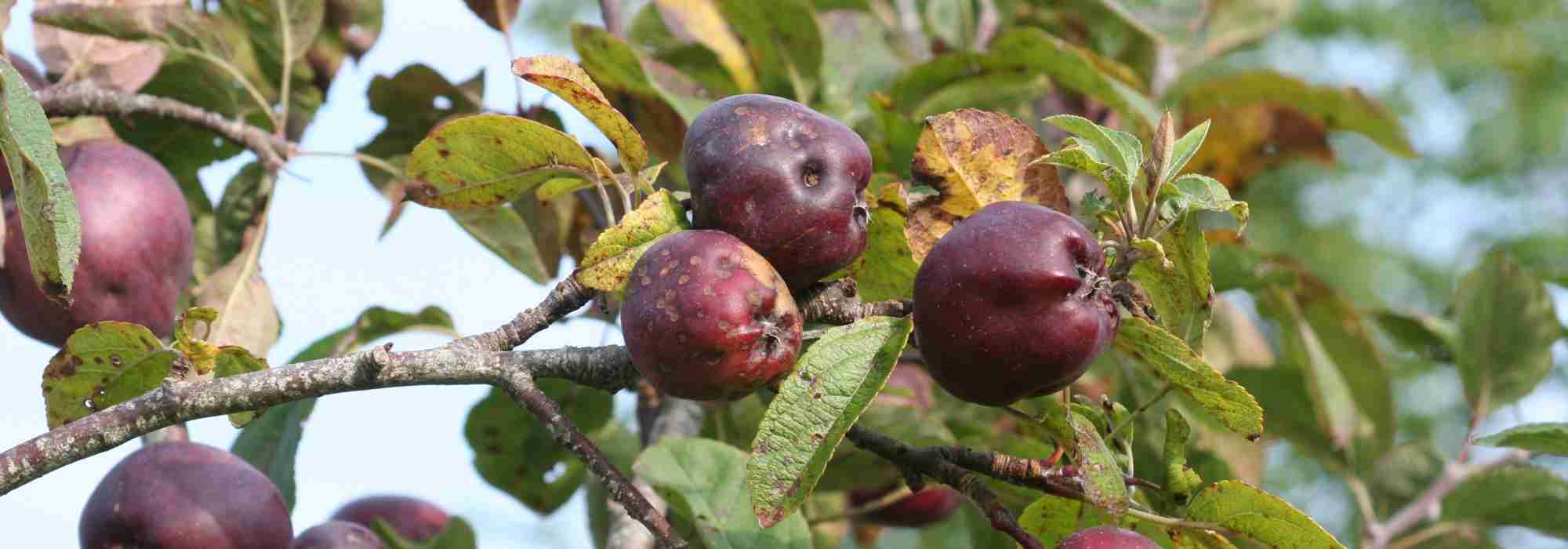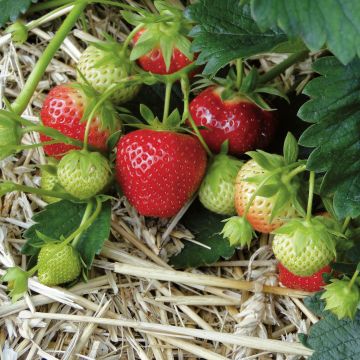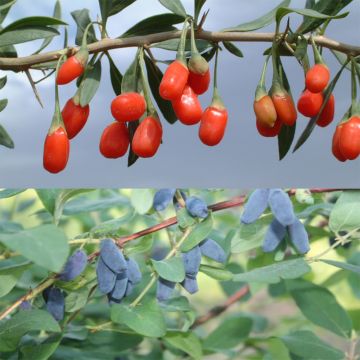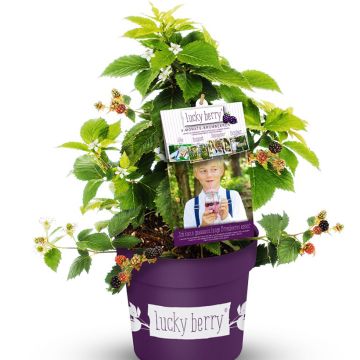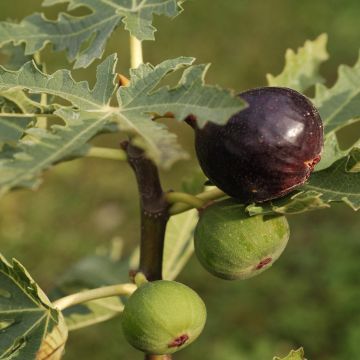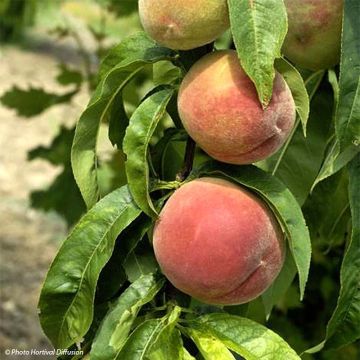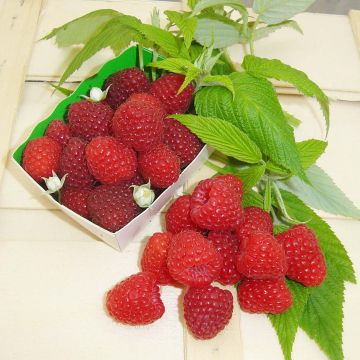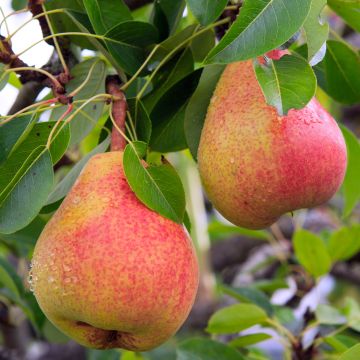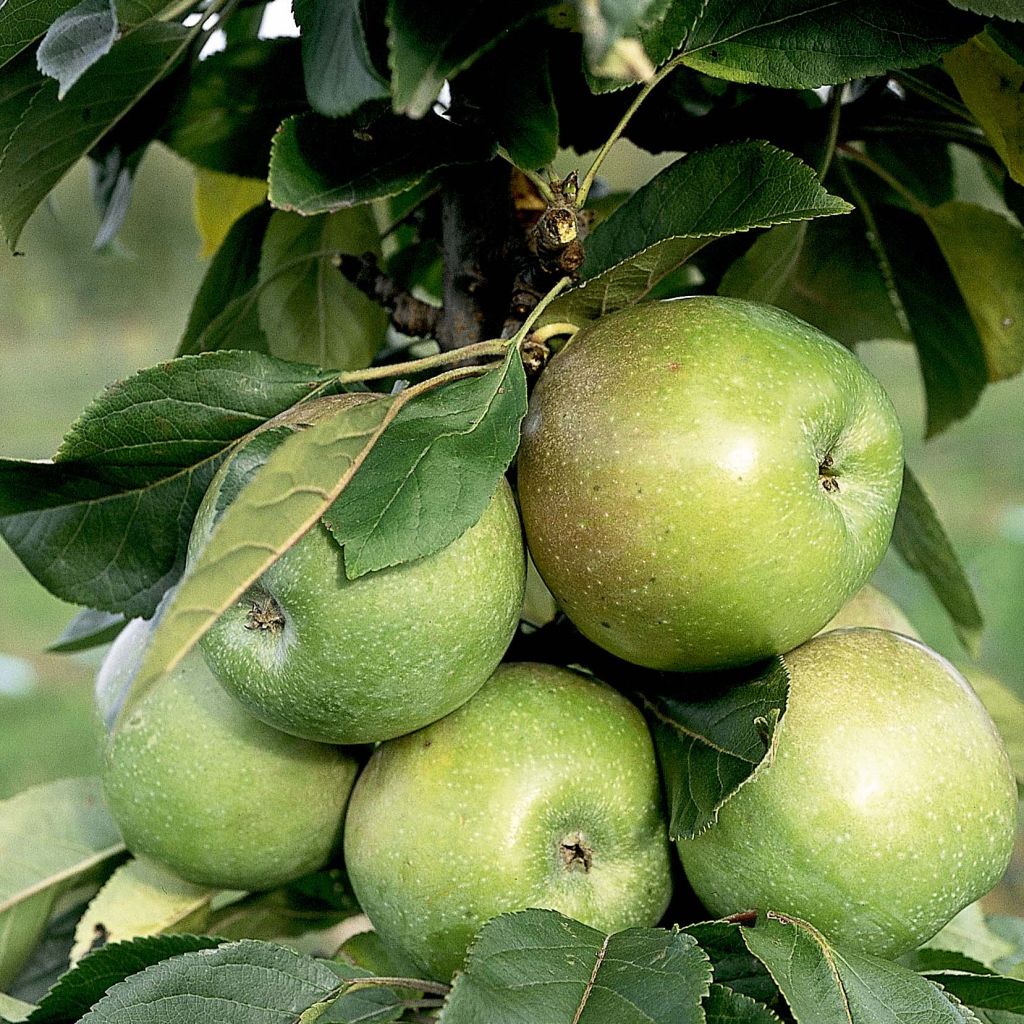

Columnar Apple Tree Amboise - Georges Delbard - Malus domestica
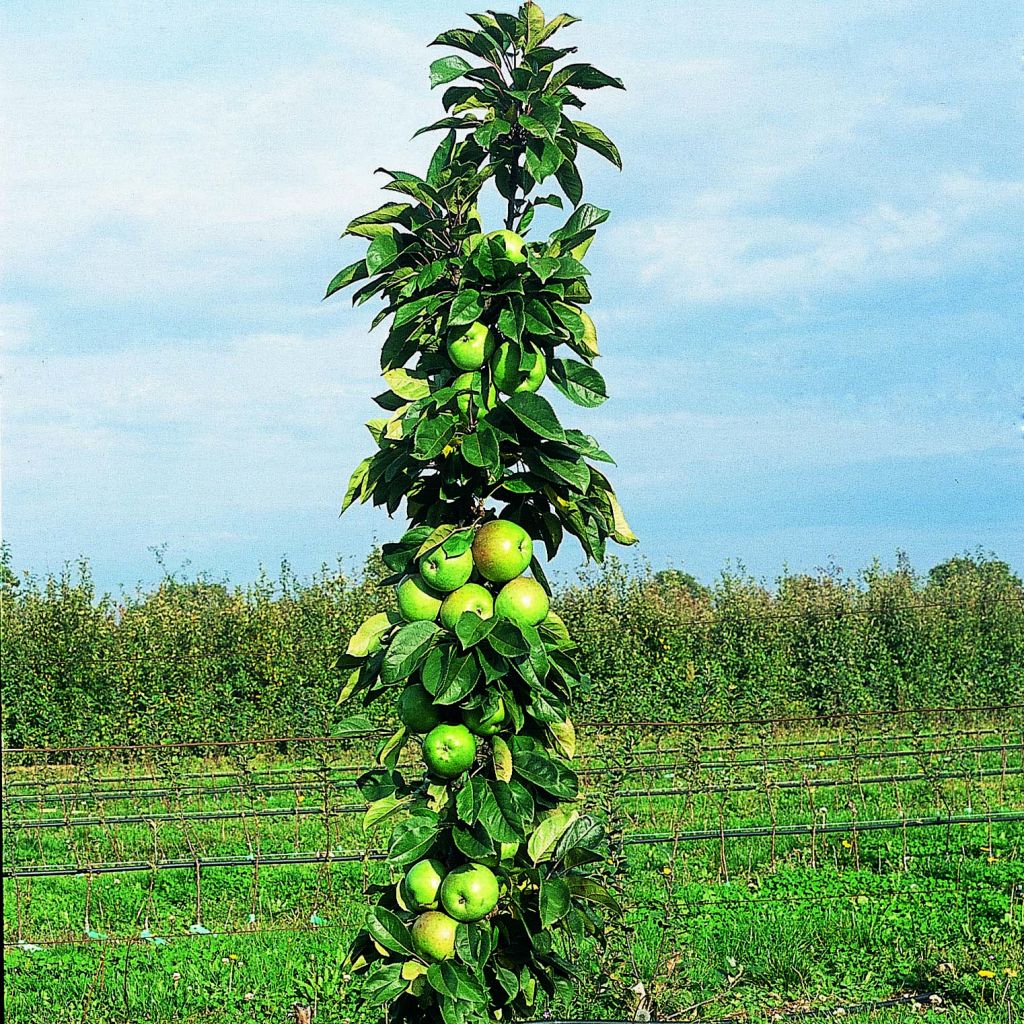

Columnar Apple Tree Amboise - Georges Delbard - Malus domestica
Columnar Apple Tree Amboise - Georges Delbard - Malus domestica
Malus domestica Amboise® Delcogra
Apple, Orchard apple, Table apple, Cultivated apple
Plant received quickly and in very good condition. Planted the next day. Looking forward to seeing how it starts in spring...
PRPIF, 18/12/2024
Special offer!
Receive a €20 voucher for any order over €90 (excluding delivery costs, credit notes, and plastic-free options)!
1- Add your favorite plants to your cart.
2- Once you have reached €90, confirm your order (you can even choose the delivery date!).
3- As soon as your order is shipped, you will receive an email containing your voucher code, valid for 3 months (90 days).
Your voucher is unique and can only be used once, for any order with a minimum value of €20, excluding delivery costs.
Can be combined with other current offers, non-divisible and non-refundable.
Home or relay delivery (depending on size and destination)
Schedule delivery date,
and select date in basket
This plant carries a 6 months recovery warranty
More information
We guarantee the quality of our plants for a full growing cycle, and will replace at our expense any plant that fails to recover under normal climatic and planting conditions.
Description
The 'Amboise' Delcogra Columnar Apple Tree is a variety perfectly suited for small gardens and cultivation in large pots on the terrace. With a height of no more than 4 metres (13 feet), it can easily be contained at 2 metres (7 feet). Highly productive and fast-growing, it quickly bears fruit and offers medium-sized, bright green apples with a deliciously tart flavour, similar to the famous 'Granny Smith'.
These fruits are harvested in September. They can be consumed immediately but also, under proper conditions, stored until February.
Hardy, the Amboise® Columnar Apple Tree can withstand temperatures as low as -20°C (-4°F) and usually blooms in May. It is a vigorous variety with rapid growth and fruiting. It produces its first fruits two to three years after planting, sometimes even earlier.
This apple tree, like all espalier forms, requires staking.
Ornamental and highly space-efficient, it only requires about 60 cm (24in) in width. Like dwarf apple trees, columnar forms are ideal for small gardens and large pots on the terrace. Cordons are also very easy to install along the edge of a vegetable garden or even in the midst of vegetables, as they do not create excessive shade. Finally, this type of fruit tree is fantastic because the fruits are easy to pick.
This apple tree is not self-fertile, so to bear abundant fruit, it should be planted near varieties that bloom simultaneously, such as 'Reine des Reinettes', commonly found in many gardens.
The apple tree (Malus pumila or domestica) is a fruit tree belonging to the Rosaceae family. It is cultivated almost everywhere in the world and includes countless old and modern varieties that produce apples of varying sizes and flavours, ranging from sweet to tart.
Apple trees are native to Europe, including France, where their presence has been documented since ancient times. Hardy, with some varieties able to withstand temperatures as low as -30°C (-22°F), they can be grown almost anywhere.
Domestic apple trees typically reach a height of no more than ten metres, with a similar spread. However, their size can be much smaller depending on the rootstock's vigour. These fruit trees generally have a tall trunk that naturally spreads out. They come in various forms (bush, half-standard, standard...) and can be trained in many ways (columnar, cordon, espalier...)
Apple tree leaves are deciduous and arranged alternately on the branches. Their lamina is ovate and dentate. The upper surface of the apple tree leaf is dark green, and the lower surface is whitish and slightly fuzzy.
In spring, apple trees bear white or pinkish-white flowers clustered in corymbs. Apple flowers comprise five petals, surrounding a core of about 20 stamens. From a botanical perspective, they give rise to fleshy fruits (drupes), spherical and filled with pips. Their colour, size, flavour, and shelf life vary depending on the variety.
Apple trees are rarely self-fertile, and to bear fruit, they require the presence of other apple trees that bloom at the same time and in close proximity.
Apple trees can be grown in all climates but mainly thrive in temperate regions, preferably with moderate humidity, such as Normandy. They thrive in sunlight and reasonably moist, fertile soil. They are traditionally planted in orchards but can be grown as standalone trees or hedges.
Apple trees are easy fruit trees that require at least minimal pruning. Proper pruning will prevent alternate bearing (fruiting every other year). An annual or biannual application of well-decomposed compost also enhances apple tree productivity.
Apples are harvested in late summer and autumn and can sometimes be stored for an extended period in a cellar and consumed until early spring. They lend themselves to a wide variety of culinary preparations (compotes, pies, jellies) and can also be used to make apple juice or cider.
This fruit tree is delivered with a "ready-to-plant" root ball. During planting, the root ball should be planted as is. The biodegradable tontine surrounding the root ball and preserving the rootlets will decompose naturally as the plant grows. By following this process, you ensure better establishment.
Columnar Apple Tree Amboise - Georges Delbard - Malus domestica in pictures
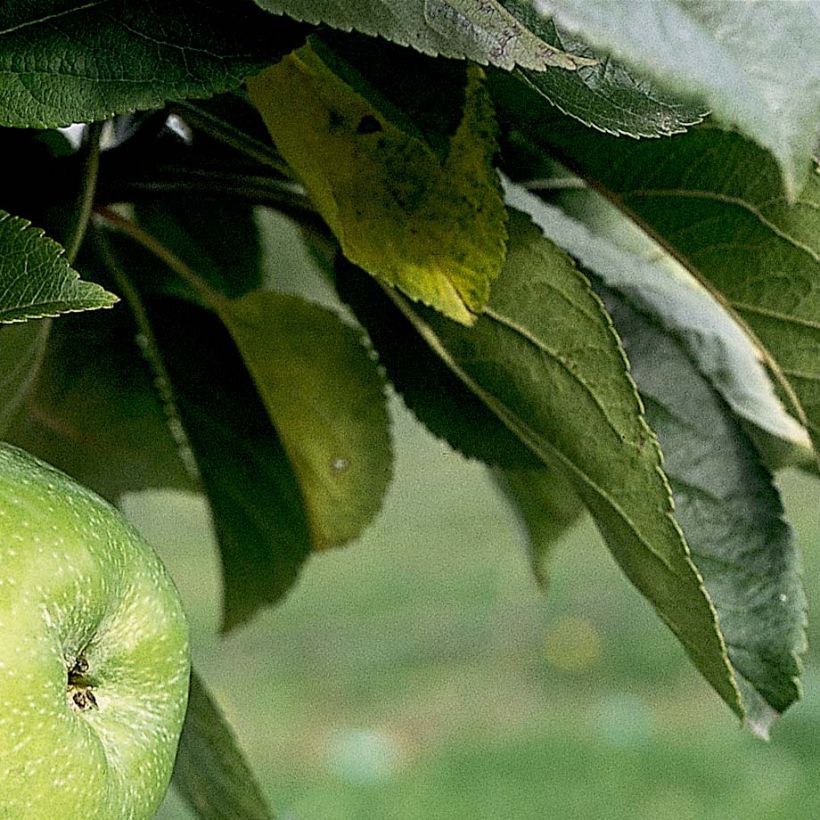

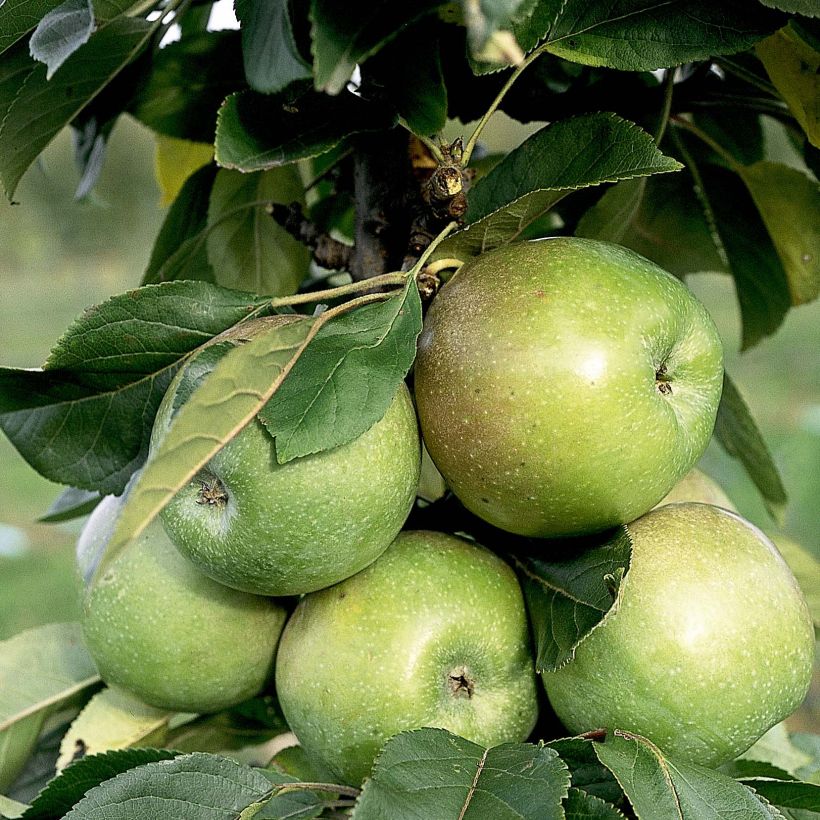

Plant habit
Fruit
Flowering
Foliage
Botanical data
Malus
domestica
Amboise® Delcogra
Rosaceae
Apple, Orchard apple, Table apple, Cultivated apple
Cultivar or hybrid
M106 (Ready-to-plant root ball - Columnar)
Other Apple trees
View all →Planting and care
Your columnar apple tree 'Amboise' can traditionally be planted on open ground. Choose a sunny location; the soil can be slightly chalky or acidic but without excess. Dig a planting hole and add organic matter (topsoil, compost...) and a base fertiliser such as bonemeal. Do not bury the graft collar. Stake and water abundantly the first time, even in winter, even if it rains. Fruit trees are ideally planted between October and March, outside the freezing period. You can add, during winter, a small handful of wood ash, rich in potash, this will improve fruiting.
The advantage of columnar fruit trees is that they can also be planted in containers for outdoor use. Choose a container of at least 60L. Ensure the container is perforated and create good drainage by filling the bottom with a thick layer of clay pellets or gravel. In pots, your trees will naturally require more regular watering. During winter, slide your fruit trees into a sheltered place from the wind and stop watering during freezing periods. Do a surface dressing at least every two years, replacing the topsoil with fresh soil and fertilising before flowering. Choose a special fertiliser that is not too rich in nitrogen.
Monitor for possible aphid attacks during the season. Harvest takes place in September. Only keep the picked fruits. Apples are stored with the stem downwards, on racks or crates. Choose a completely dark, dry, and cool place that is frost-free.
Planting period
Intended location
Care
Planting & care advice
-
, onOrder confirmed
Reply from on Promesse de fleurs
Similar products
Haven't found what you were looking for?
Hardiness is the lowest winter temperature a plant can endure without suffering serious damage or even dying. However, hardiness is affected by location (a sheltered area, such as a patio), protection (winter cover) and soil type (hardiness is improved by well-drained soil).

Photo Sharing Terms & Conditions
In order to encourage gardeners to interact and share their experiences, Promesse de fleurs offers various media enabling content to be uploaded onto its Site - in particular via the ‘Photo sharing’ module.
The User agrees to refrain from:
- Posting any content that is illegal, prejudicial, insulting, racist, inciteful to hatred, revisionist, contrary to public decency, that infringes on privacy or on the privacy rights of third parties, in particular the publicity rights of persons and goods, intellectual property rights, or the right to privacy.
- Submitting content on behalf of a third party;
- Impersonate the identity of a third party and/or publish any personal information about a third party;
In general, the User undertakes to refrain from any unethical behaviour.
All Content (in particular text, comments, files, images, photos, videos, creative works, etc.), which may be subject to property or intellectual property rights, image or other private rights, shall remain the property of the User, subject to the limited rights granted by the terms of the licence granted by Promesse de fleurs as stated below. Users are at liberty to publish or not to publish such Content on the Site, notably via the ‘Photo Sharing’ facility, and accept that this Content shall be made public and freely accessible, notably on the Internet.
Users further acknowledge, undertake to have ,and guarantee that they hold all necessary rights and permissions to publish such material on the Site, in particular with regard to the legislation in force pertaining to any privacy, property, intellectual property, image, or contractual rights, or rights of any other nature. By publishing such Content on the Site, Users acknowledge accepting full liability as publishers of the Content within the meaning of the law, and grant Promesse de fleurs, free of charge, an inclusive, worldwide licence for the said Content for the entire duration of its publication, including all reproduction, representation, up/downloading, displaying, performing, transmission, and storage rights.
Users also grant permission for their name to be linked to the Content and accept that this link may not always be made available.
By engaging in posting material, Users consent to their Content becoming automatically accessible on the Internet, in particular on other sites and/or blogs and/or web pages of the Promesse de fleurs site, including in particular social pages and the Promesse de fleurs catalogue.
Users may secure the removal of entrusted content free of charge by issuing a simple request via our contact form.
The flowering period indicated on our website applies to countries and regions located in USDA zone 8 (France, the United Kingdom, Ireland, the Netherlands, etc.)
It will vary according to where you live:
- In zones 9 to 10 (Italy, Spain, Greece, etc.), flowering will occur about 2 to 4 weeks earlier.
- In zones 6 to 7 (Germany, Poland, Slovenia, and lower mountainous regions), flowering will be delayed by 2 to 3 weeks.
- In zone 5 (Central Europe, Scandinavia), blooming will be delayed by 3 to 5 weeks.
In temperate climates, pruning of spring-flowering shrubs (forsythia, spireas, etc.) should be done just after flowering.
Pruning of summer-flowering shrubs (Indian Lilac, Perovskia, etc.) can be done in winter or spring.
In cold regions as well as with frost-sensitive plants, avoid pruning too early when severe frosts may still occur.
The planting period indicated on our website applies to countries and regions located in USDA zone 8 (France, United Kingdom, Ireland, Netherlands).
It will vary according to where you live:
- In Mediterranean zones (Marseille, Madrid, Milan, etc.), autumn and winter are the best planting periods.
- In continental zones (Strasbourg, Munich, Vienna, etc.), delay planting by 2 to 3 weeks in spring and bring it forward by 2 to 4 weeks in autumn.
- In mountainous regions (the Alps, Pyrenees, Carpathians, etc.), it is best to plant in late spring (May-June) or late summer (August-September).
The harvesting period indicated on our website applies to countries and regions in USDA zone 8 (France, England, Ireland, the Netherlands).
In colder areas (Scandinavia, Poland, Austria...) fruit and vegetable harvests are likely to be delayed by 3-4 weeks.
In warmer areas (Italy, Spain, Greece, etc.), harvesting will probably take place earlier, depending on weather conditions.
The sowing periods indicated on our website apply to countries and regions within USDA Zone 8 (France, UK, Ireland, Netherlands).
In colder areas (Scandinavia, Poland, Austria...), delay any outdoor sowing by 3-4 weeks, or sow under glass.
In warmer climes (Italy, Spain, Greece, etc.), bring outdoor sowing forward by a few weeks.































